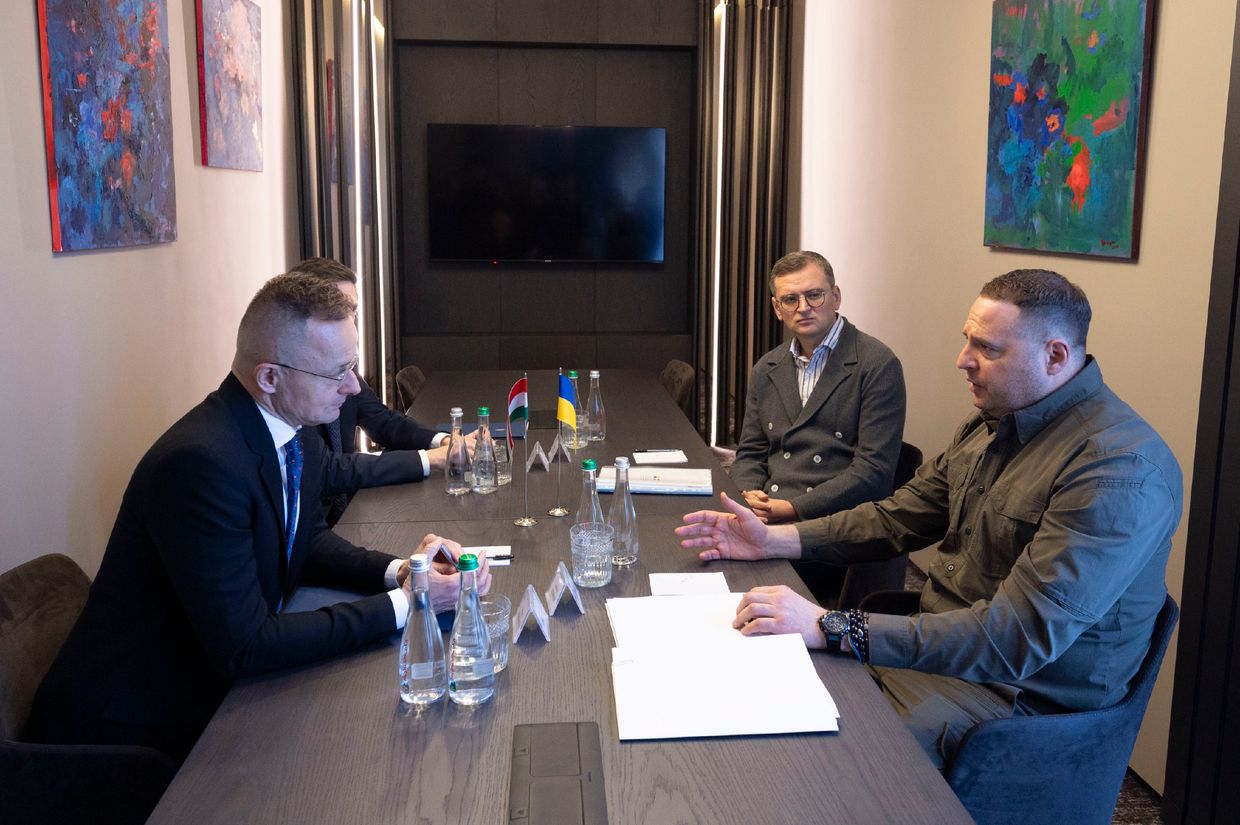Hungarian official says 'positive signs' in talks with Ukraine on national minorities

There have been "positive signs" regarding Ukraine's fulfillment of Budapest's demands on national minorities issues in recent weeks, Hungarian State Secretary Tristan Azbej said on May 7.
"In the last weeks we have seen some positive signs, but we still have some way to go until all our demands regarding the minority rights are met," Azbej said ahead of the EU ministers meeting in Brussels.
Budapest has repeatedly accused Kyiv of discriminating against the Hungarian ethnic minority concentrated in southwestern Ukraine, an accusation that the Ukrainian leadership denies.
Much of these disputes center around Ukraine's language laws that require at least 70% of education above fifth grade to be conducted in Ukrainian.
While Budapest has called this measure discriminatory toward the Hungarian minority, Kyiv retorted that it only aims to ensure that every Ukrainian citizen has sufficient knowledge of the official language.
Hungary has formulated an 11-point request to Ukraine regarding the rights of national minorities, which included the restoration of the status of a national school, the ability to take a high school diploma in Hungarian, and the ability to use Hungarian in public life.
Radio Free Europe/Radio Liberty (RFE/RL) reported in mid-March that Hungary has sent a document to the EU member states criticizing Ukraine's policies on national minorities.
In the document, Budapest reportedly demanded the restoration of the rights its minority had before 2015, noting that the protection of national minorities' rights is one of the priorities mentioned in the negotiating framework for Ukraine's potential accession to the EU.
Hungary also called for the possibility of political representation at the regional and national levels, according to the document. Kyiv has not publicly responded to the document.
In September 2023, the Ukrainian parliament approved changes to national minorities law, which was one of seven steps recommended by the European Commission in June 2022 for Ukraine's accession to the European Union. The changes were signed into law by President Volodymyr Zelensky in November.













